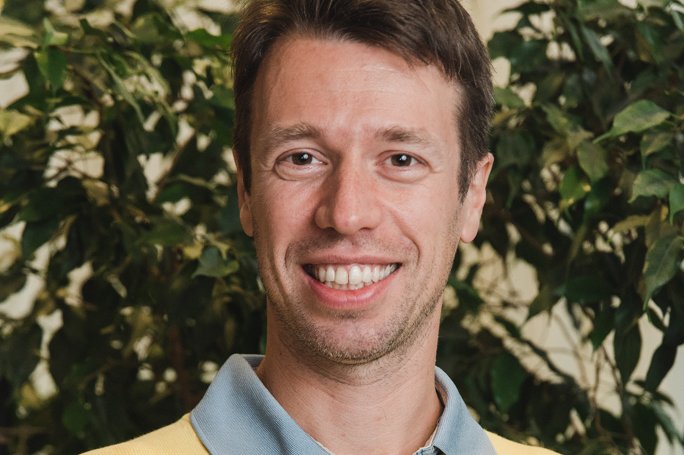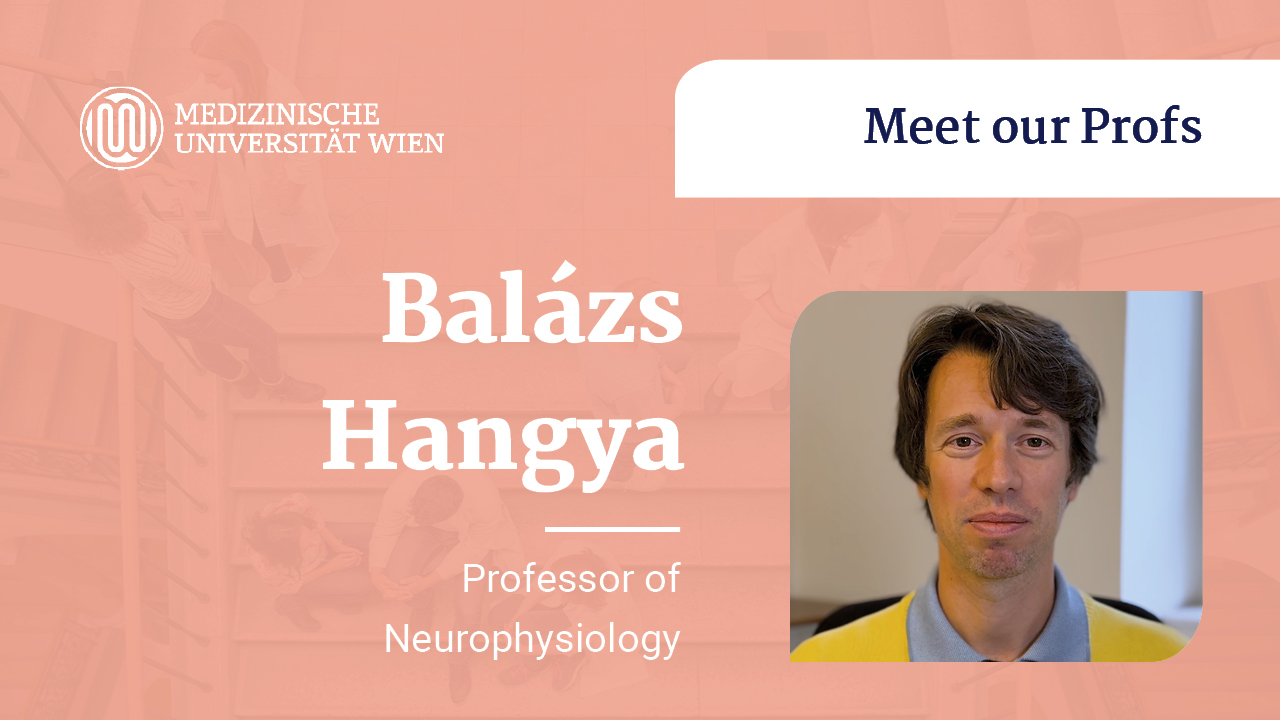
(Vienna, 01 October 2025) Balázs Hangya took up the professorship in neurophysiology (§98) at MedUni Vienna at the beginning of October. He is an expert in neuromodulatory systems and researches how chemical messengers in the brain control learning, memory, attention and decision-making and how they are altered in disease.
Balázs Hangya researches the neural basis of learning, memory, attention and decision-making. His work shows how the medial septum controls hippocampal oscillations, how central cholinergic neurons encode prediction error signals and how inhibitory interneurons influence cortical processing. In addition, he combines experimental neuroscience with theoretical modelling and computational approaches and develops open software tools for research.
One focus of his current projects is the comparative study of neuromodulatory systems (acetylcholine, dopamine, noradrenaline, serotonin). The aim is to understand their common and specific contributions to cognitive processes by simultaneously recording their activity, manipulating it optogenetically, and analysing it in mouse models of neuropsychiatric and neurodegenerative diseases. In addition, he collaborates with human laboratories to investigate learning mechanisms in animals and humans in parallel.
Balázs Hangya has been teaching at Semmelweis University and Eötvös Loránd University for many years at all levels of education (BSc, MSc, PhD), particularly in courses on neurophysiology, interneurons and optogenetics.
About
Balázs Hangya completed his medical training at Semmelweis University in Budapest and received his doctorate in 2006. At the same time, he trained as a mathematician and obtained a master's degree in probability theory and statistics from Eötvös Loránd University in Budapest in 2007. He joined Tamás Freund's laboratory at the Institute of Experimental Medicine in Budapest, where he studied the neural mechanisms of hippocampal and neocortical oscillations. In 2010, he received his PhD in neuroscience from the János Szentágothai Doctoral School. Hangya spent four and a half years in the United States as a postdoctoral fellow in the Kepecs Laboratory at Cold Spring Harbor Laboratory, where he investigated the role of the cholinergic system in the basal forebrain in attention and learning. In 2015, he established his own laboratory at the Institute of Experimental Medicine in Budapest, where he researches the neuromodulatory control of cognitive functions such as learning and decision-making.

After activation, data will be sent to YouTube. Further information here: Data protection